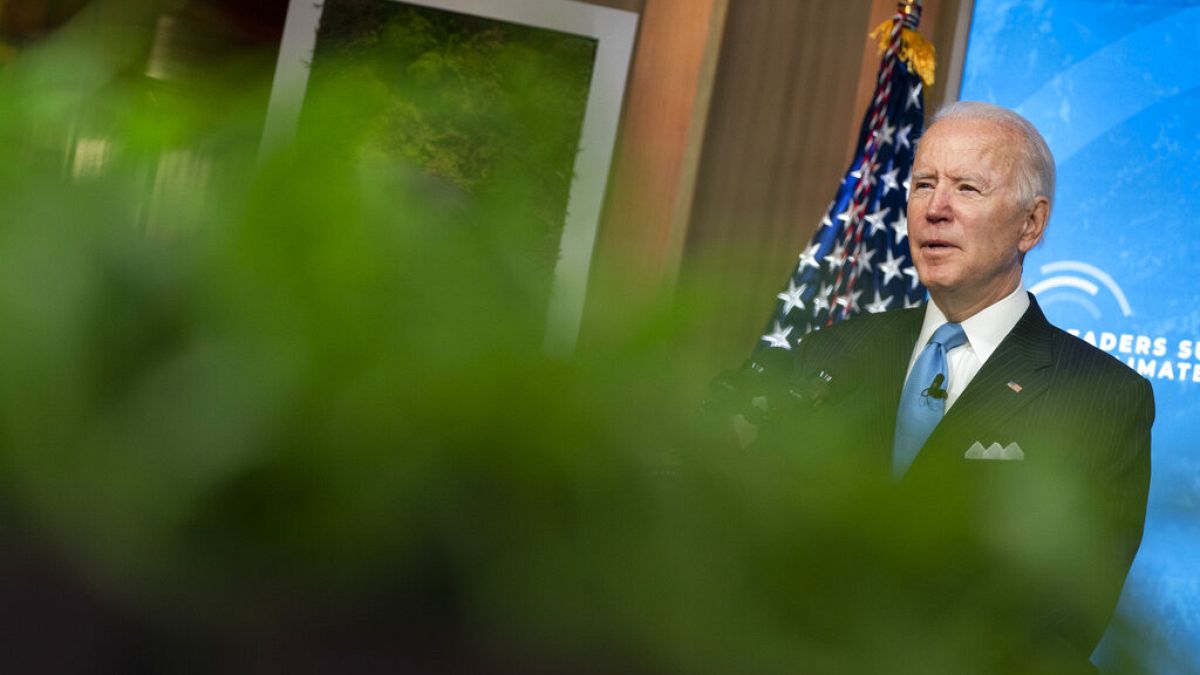European nations have learned that U.S. presidents come and go. Waiting for Washington to institute global change is a fool's errand.
The first 100 days of President Joe Biden has been a microcosm of a full presidency.
After a week or so of initial euphoria, came a slump as reality hit home that he was not, in fact, a miracle worker.
In foreign relations too, the post-inauguration slump was evident. As predicted by many respondents to a pan-European survey earlier this year, it quickly became clear that domestic priorities would prevent the US from regaining its role as a shaper of the international system.
But Biden now has feet under the table, with vaccines now available to all Americans over 16 and the unveiling last month of a major infrastructure investment package, and more to follow on investment in childcare, education, and healthcare.
There are also green shoots in Biden’s international engagement. The climate agenda is one clear example, where, as part of his ‘foreign policy for the middle class’, he has begun to build support for an approach to global challenges that will impact the lives of the American people.
Last week, Biden hosted 40 world leaders at a virtual climate summit to mark Earth Day. He opened the proceedings with a promise to halve US greenhouse gas emissions by 2030, showing that his ‘day one’ pledge to reengage with the Paris climate agreement was not just empty rhetoric.
Climate summit
Back on this side of the Atlantic, hope should stem not just from the fact that the US is back on the climate file, but also that Europeans seem to have digested that because presidents come and go, on longer-term challenges it is not enough to simply follow Washington – they need to build their own sovereignty too.
A European climate summit is now hotly tipped to take place at the end of May. This approach to engaging in a conversation with international partners about the consequences of the Green Deal is badly needed.
In ‘Europe’s Green Moment: How to meet the Climate challenge’, published last week, a survey of policymakers across the EU’s 27 member states revealed that a major concern in many countries is how to manage the geopolitical dimension of the Green Deal.
In particular the plans to develop a Carbon Border Adjustment Mechanism (CBAM), on which a European Commission proposal is expected before the summer.
Domestic lobbies’ scepticism about the measure is prompting some member states to speak out strongly against it in the European Council. These are often smaller EU economies – such as Denmark and the Netherlands - that worry about third countries’ potential retaliation against the CBAM.
Industry lobbies in these countries – that are both heavily dependent on exports – are concerned that by moving ahead of other markets on the transition away from carbon, the EU could render its businesses less competitive with a knock-on impact on jobs.
They argue that a CBAM would be perceived as protectionism and at odds with the EU’s ambitions to be a global champion of free trade, with the benefits that brings to export-based economies.
There are fears in EU institutions and member states that policy-makers cannot muster the collective courage to impose the CBAM on the US for fear of antagonising their newly re-engaged partner; on India because of Europe’s dependence on the country for the production of vaccines; or on other developing nations in case this pushes them out of European markets.
Double-bind
As a result, they believe the CBAM will have too little global coverage to be effective.
However, without CBAM, as part of a broader package of trade measures including pushing within the WTO for clearer carbon pricing, climate impact clauses in free trade agreements, and climate diplomacy to persuade other actors to transition away from carbon, the Green Deal will have limited impact, given that the EU accounts for less than 10 per cent of all greenhouse gas emissions.
It is a double-bind for Europe’s leaders. Without an effective foreign policy strategy to manage the geopolitical consequences of the Green Deal, they limit the bloc’s contribution to the global targets.
Moreover, fears over the low-carbon transition rendering European businesses uncompetitive could deplete political will to implement the package. This, in turn, will disappoint European citizens, who in successive elections have made clear that they expect their leaders to be prepared to face the climate crisis.
Ultimately, European leaders have no choice but to find the political resolve to implement the Green Deal and to do so, they need to show that it is underpinned by a solid foreign policy strategy.
As Biden approaches his 100-day mark, EU leaders should reflect on how they have performed in the first days 100 days of the new transatlantic relationship.
Have they taken advantage of Biden’s global re-engagement, but at the same time demonstrated that in shaping the post COVID world, their goal is joint leadership, and not simply to follow?
The forthcoming European climate summit will be one key test to find out.
Susi Dennison is a senior policy fellow and the director of the ‘European Power’ programme at the European Council on Foreign Relations.
The Views expressed here are of the authors.
